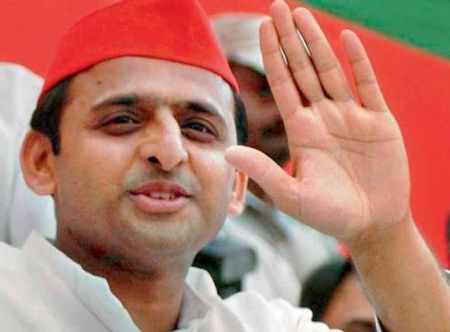
Lucknow, August 17: The Samajwadi Party (SP) government rode to power earlier this year in March after winning elections on the issue of corruption in previous Bahujan Samaj Party (BSP) regime. However, contrary to the repeated assurances that it would weed out corruption and take strict action against the accused, the Akhilesh Yadav-led SP government seems to be protecting those named in various alleged scams which occurred during the Mayawati rule.
Sample this: while Rs 1200 crore sugar mill sale scam has been put in the back burner, the government has not given sanction to the CBI for prosecuting senior officials and doctors named in the Rs-5700 crore National Rural Health Mission (NRHM) scam and a through probe in the Rs 1000-crore Noida farm house land allotment scam is being unnecessarily delayed. Further, the inquires ordered in over a dozen other scams are moving at a snail's pace.
In the Noida farm house land allotment scam, the government has been accused of trying to protect the officials involved in the scam. First preliminary inquiry was delayed and the matter was referred to the Lokayukta only after media highlighted the anomalies. Now, it has come to light that the required procedure was not followed before sending the case to Lokayukta. As a result, the Lokayukta has returned the government's request to probe the scam.
In the NRHM scam, the government is sitting over CBI's request to for sanction of prosecution of prime accused IAS officer Pradeep Shukla and over 20 doctors named in investigations. Further, Shukla, who was arrested by the CBI, was not even put under suspension by the state government for the period he was in the jail for 90 days before getting bail on August 13. Significantly, senior SP minister and chief minister's uncle Shivpal Yadav visited Shukla in jail.
In sugar mill scam, the SP government after coming to power had promised to take action but did nothing. When accused by some opposition parties of going easy on Mayawati, the government constituted a 9-member team headed by chief secretary in June this year to probe the matter again, despite the fact that the Comptroller and Auditor General had already found anomalies worth Rs 1200 crore in sale of 21 government sugar mills during BSP rule.
Though SP leaders continue to blame the corruption in previous BSP regime for the mess in the state, they have done little, barring suspensions of lower rung officials, to send a strong signal that their government is against corruption. Even the decision to refer anomalies in construction of Dalit memorials to the Lokayukta was taken after High Court issued a notice on a public interest litigation (PIL) seeking information about action taken in the scam.
Other alleged scams which are bring probed but at a snail's pace include anomalies in construction of toilets in rural households, arbitrary use of urgency clause for acquiring over 10,000 acre of agriculture land in Noida for housing projects, irregularities in appointment of about 72,000 primary teachers, anomalies in construction of canals and irregularities in allotment of contracts for mining, excise and high security number plates among other cases.




Comments
Add new comment